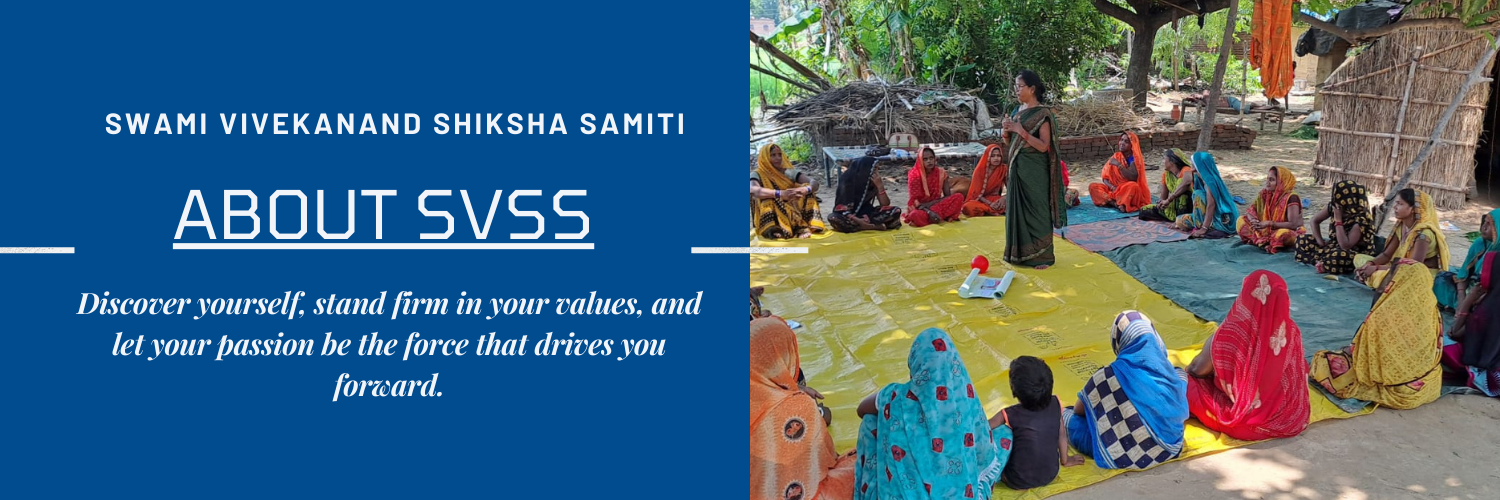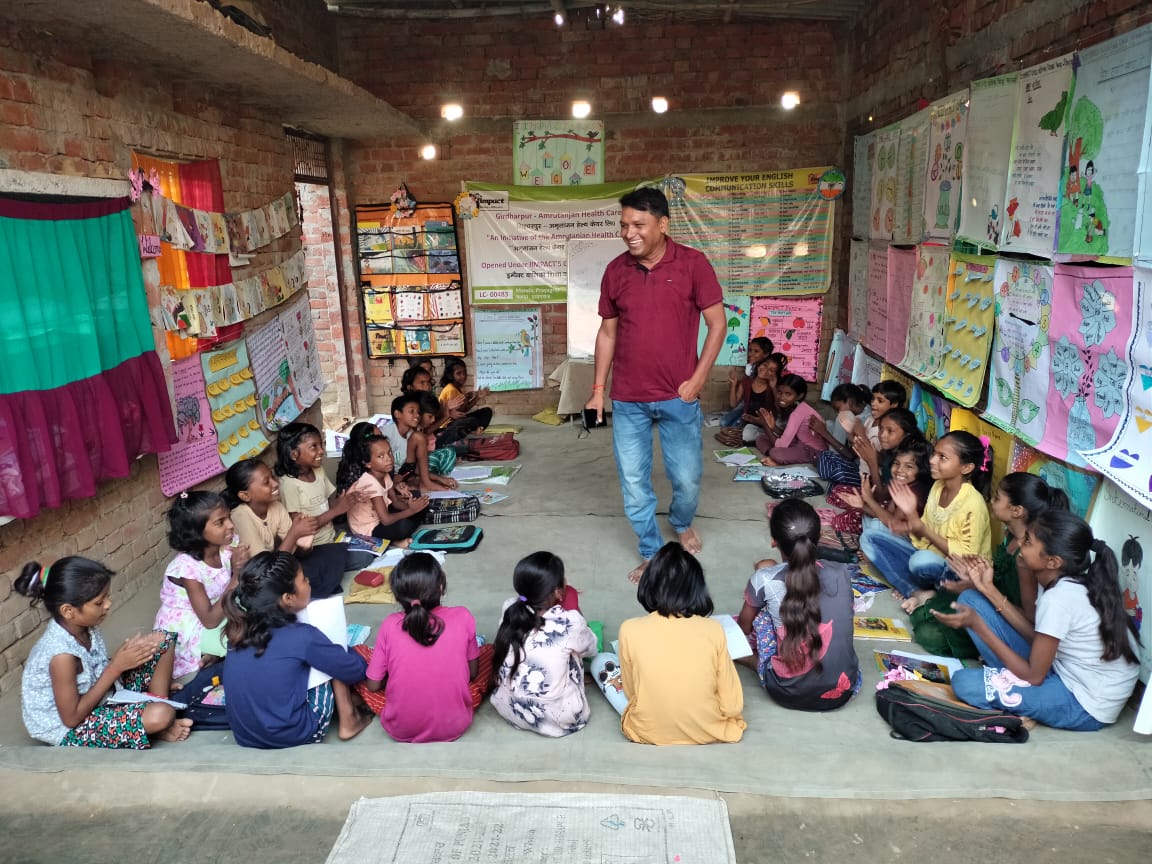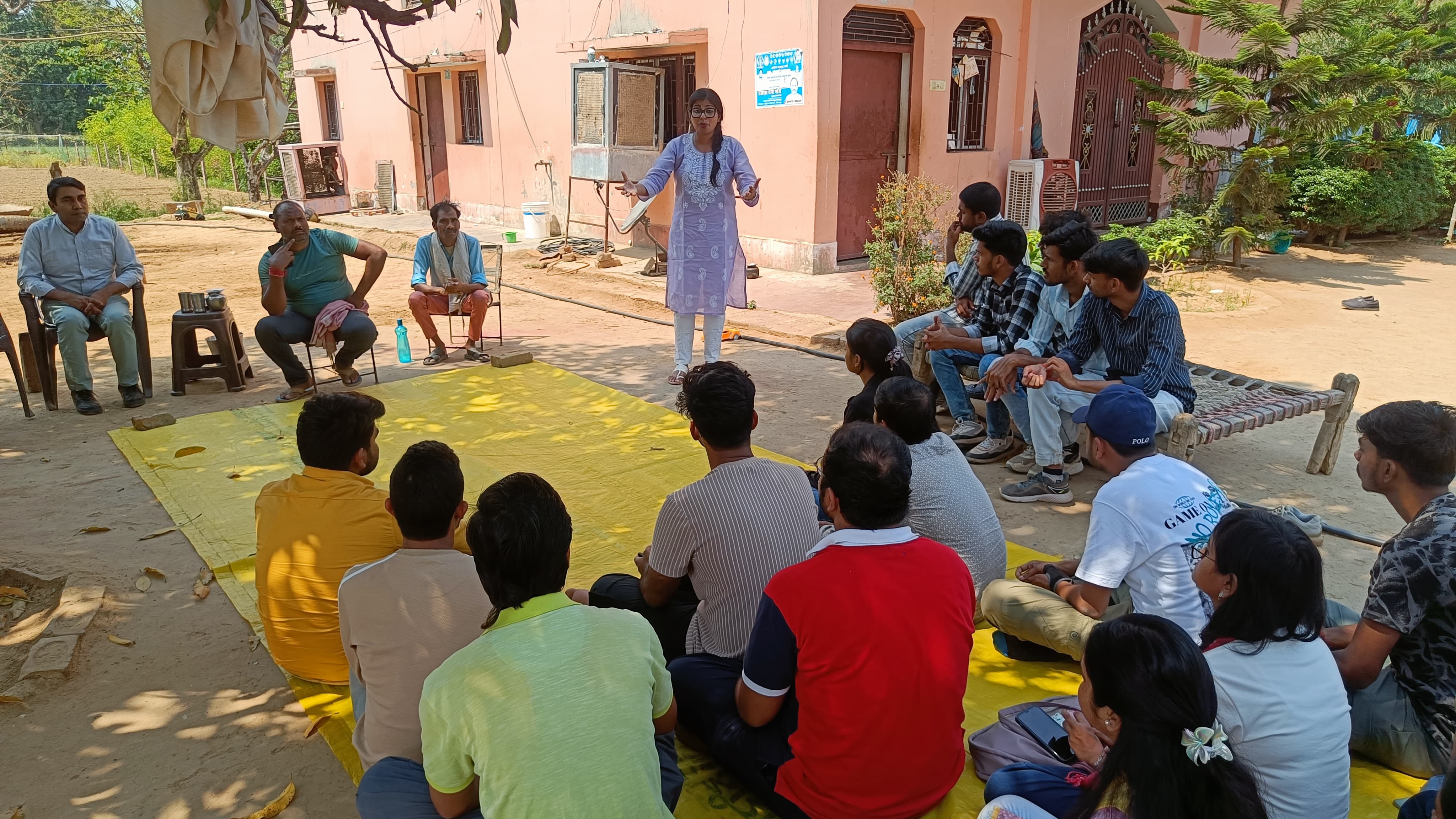

Swami Vivekanand Shiksha Samiti (SVSS) has been a pivotal force in rural development since its inception in 1970. Established in Mujehara, Uttar Pradesh, the organization has expanded its scope from addressing immediate community needs to implementing long-term, sustainable development programmes. Over the past five decades, SVSS has empowered thousands of individuals, providing education, employment, and healthcare to marginalized communities. Through its interventions, SVSS has transformed countless lives, helping individuals rise above poverty, gain self-reliance, and achieve personal and social progress.
With an unwavering commitment to creating sustainable change, SVSS has adopted a holistic approach to tackling social and economic challenges, ensuring that vulnerable communities receive the support they need to improve their quality of life. This report encapsulates the history, evolution, and impact of SVSS, detailing its contributions in education, rehabilitation, women empowerment, health, livelihood, child rights, and environmental conservation.
A just, egalitarian, and democratic society where every individual lives with dignity, free from violence, hunger, and exploitation.


We are committed to empowering marginalized communities by strengthening self-governance, enhancing public service accountability, and fostering leadership—especially among women and children. Through strategic partnerships with government and organizations at all levels, we scale and replicate sustainable models of development, ensuring equitable access to rights and entitlements. Our mission is to create an inclusive society where every individual can realize their full potential and lead a life of dignity.
SVSS was founded by Mr. Uma Shankar, inspired by the struggles faced by marginalized communities. Observing that women were primarily engaged in agricultural work while men remained unemployed and addicted to alcohol, he recognized the need for sustainable livelihoods and educational opportunities to uplift society. His grandmother had pioneered social work in the family, laying the foundation for future interventions. She started by providing basic necessities, such as blouses to women working in agriculture, which later evolved into broader social welfare initiatives. Inspired by her, Mr. Uma Shankar worked to establish a holistic approach to social reform, focusing on the key aspects of education, livelihood, and social awareness that's how SVSS came to live.
Swami Vivekanand Shiksha Samiti (SVSS) is a not-for-profit organization registered under the Societies Act in the year 1971. The idea of its genesis five decades ago was conceived by Shri Uma Shankar Srivastava who was inspired by the philosophy of Swami Vivekanand. He envisioned the creation of an organization that could generate awareness on education and uplift the poor masses, especially women and children.
Recognizing the backwardness of Uttar Pradesh and the daunting need for development interventions, SVSS stepped in to improve the status of education in the rural pockets through improving service delivery mechanisms as well as making rural inhabitants realize the importance of education. A congregation of like-minded social activists came together and SVSS was established to make this mandate a reality. Recognizing the need for intervention SVSS, in collaboration with its donors expanded its outreach in the domains of health and livelihood envisaging for holistic community development through rights-based approach.
SVSS has been working relentlessly for 54 years towards the marginalized sections of the society, especially women, youth, and children. The work at SVSS is governed by the guiding principles of being secular and non-political. SVSS has spread its wings over the years and presently has made major and minor impacts in 1038 villages in Uttar Pradesh and has touched the lives of over 659751 beneficiaries.